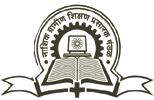
Designation: HOD
Qualification: Science
Experience: 4 years
Specialization: Microbiology
Mobile: 9403031306
Email-id: jmogare123@gmail.com
Office-Address: Brahma Valley College of Arts,Commerce and Science
About Department
The Department of Microbiology provides a strong foundation in understanding the microbial world and its applications in health, agriculture, industry, and the environment. With the NEP–2020 based curriculum, it follows a flexible and student-centric approach that balances theory with practical learning. The department has well-equipped laboratories and experienced faculty who guide students in developing scientific knowledge, technical skills, and research aptitude. Apart from academics, emphasis is also given to soft skills, ethics, and environmental responsibility, preparing learners for higher studies and diverse career opportunities.
Vision
The vision of the Department of Microbiology is to become a center of excellence in microbiology education and research, producing graduates who are knowledgeable, skilled, and socially responsible. It strives to create an environment where students are encouraged to explore, innovate, and apply their knowledge for the benefit of society. By aligning with the principles of NEP–2020, the department envisions building competent professionals who can contribute effectively to science, industry, and sustainable development.
Mission
The mission of the department is to deliver high-quality education in microbiology through an innovative and interdisciplinary curriculum, advanced laboratory training, and continuous skill development. It seeks to prepare students not only for academic achievements but also for real-world challenges by promoting problem-solving ability, research culture, and employability skills. The department is committed to fostering curiosity, lifelong learning, and a sense of responsibility towards health, environment, and community welfare.
Objectives
Aims
-
Objectives
The primary objectives of the department are to provide students with a thorough understanding of microorganisms and their importance in various fields, to develop practical laboratory skills essential for microbiology, and to cultivate critical thinking and scientific reasoning. The program also aims to prepare students for higher education, research, and employment in diverse sectors such as healthcare, pharmaceuticals, food industries, and environmental management. In addition, it focuses on nurturing values like ethical practices, teamwork, and social responsibility among students.
Staff Profile
| Sr. No. | Photographs | Name | Designation | Qualification | Resume |
|---|---|---|---|---|---|
| 1 |

|
Dr. Mogare Jay Romesh | HOD | Science | View |
Courses Offered
| Sr. No. | Subject Code | Subject Name | Class | Sem |
|---|---|---|---|---|
| 1 | MB-101–MJ | Introduction to Microbial World | FYBSC | 1 |
| 2 | MB-151–MJ | Bacterial Cytology and Biomolecules | FYBSC | 2 |
Total Intake
| Sr. No. | Name | Duration | Total BA Intake |
|---|---|---|---|
| 1 | F.Y.BSC | First Year | 120 |
Course / Program Outcomes (CO/PO/PSO)
After completing the FYB.Sc. Microbiology course, the student will be able to:
CO.1. Explain the history, scope, and importance of microbiology in different fields of life sciences.
CO.2. Understand microbial diversity, classification, bacterial cytology, and biomolecules.
CO.3. Perform basic microbiological laboratory techniques such as staining, culturing, sterilization, and microbial enumeration.
CO.4. Interpret experimental results scientifically and apply reasoning to solve microbiology-related problems.
CO.5. Demonstrate awareness of microbial applications in industry, health, agriculture, and environmental sustainability.
On completion of the B.Sc. program under NEP–2020, students will be able to:
PO.1. Gain a broad knowledge of science subjects with specialization in microbiology along with interdisciplinary exposure.
PO.2. Apply scientific reasoning, analytical skills, and critical thinking to real-life situations.
PO.3. Develop effective communication, teamwork, leadership, and problem-solving abilities.
PO.4. Use modern tools, laboratory techniques, and digital platforms responsibly for scientific learning and research.
PO.5. Uphold professional ethics, environmental awareness, and a sense of responsibility towards society and nation-building.
For B.Sc. Microbiology, the specific learning outcomes are:
PSO.1. Acquire in-depth knowledge of microbial structure, physiology, genetics, and their applied aspects.
PSO.2. Demonstrate proficiency in microbiological techniques, including aseptic handling, culturing, and identification of microorganisms.
PSO.3. Apply microbiological concepts in fields such as medical microbiology, immunology, food, dairy, environmental microbiology, and biotechnology.
PSO.4. Design and execute small-scale projects or experiments, analyze results, and present findings effectively.
PSO.5. Prepare for higher education, competitive exams, and diverse career opportunities in healthcare, pharmaceuticals, industries, and research institutions.

